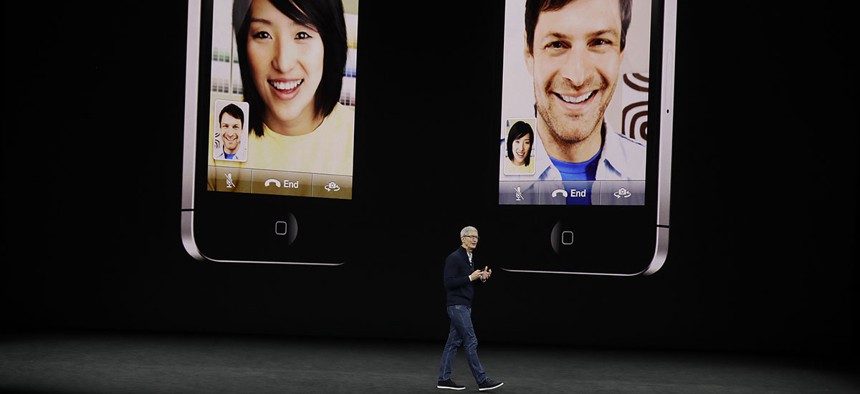Apple Responds to Face ID Controversy

Apple CEO Tim Cook, shows the new iPhone 8 at the Steve Jobs Theater on the new Apple campus on Tuesday, Sept. 12, 2017. Marcio Jose Sanchez/AP
The tech giant has a lot of questions to answer.
When Apple announced in September that the iPhone X model will use a facial recognition instead of a fingerprint scanner to unlock the device, many people had concerns about the privacy and security of this new feature.
Sen. Al Franken, D-Minn. was one of those concerned and wrote an open letter to Apple CEO Tim Cook requesting more information about users' security, third-party access to data and law enforcement requests to see the data.
Apple responded and hoped to quell any privacy concerns. According to Engadget, the company offered a detailed explanation of how the technology works and how after five unsuccessful scans, a passcode would be required to access the device.
Apple also discussed how Face ID data would be stored. Specifically, the data is encrypted and only available to the Secure Enclave, an ARM-based coprocessor used to enhance iOS security.
"This data never leaves the device. It is not sent to Apple, nor is it included in device backups," Apple said.
Apple did not touch on Franken's questions about data requests from law enforcement, which is still a major concern for some people. The Face ID feature will launch officially in November.



